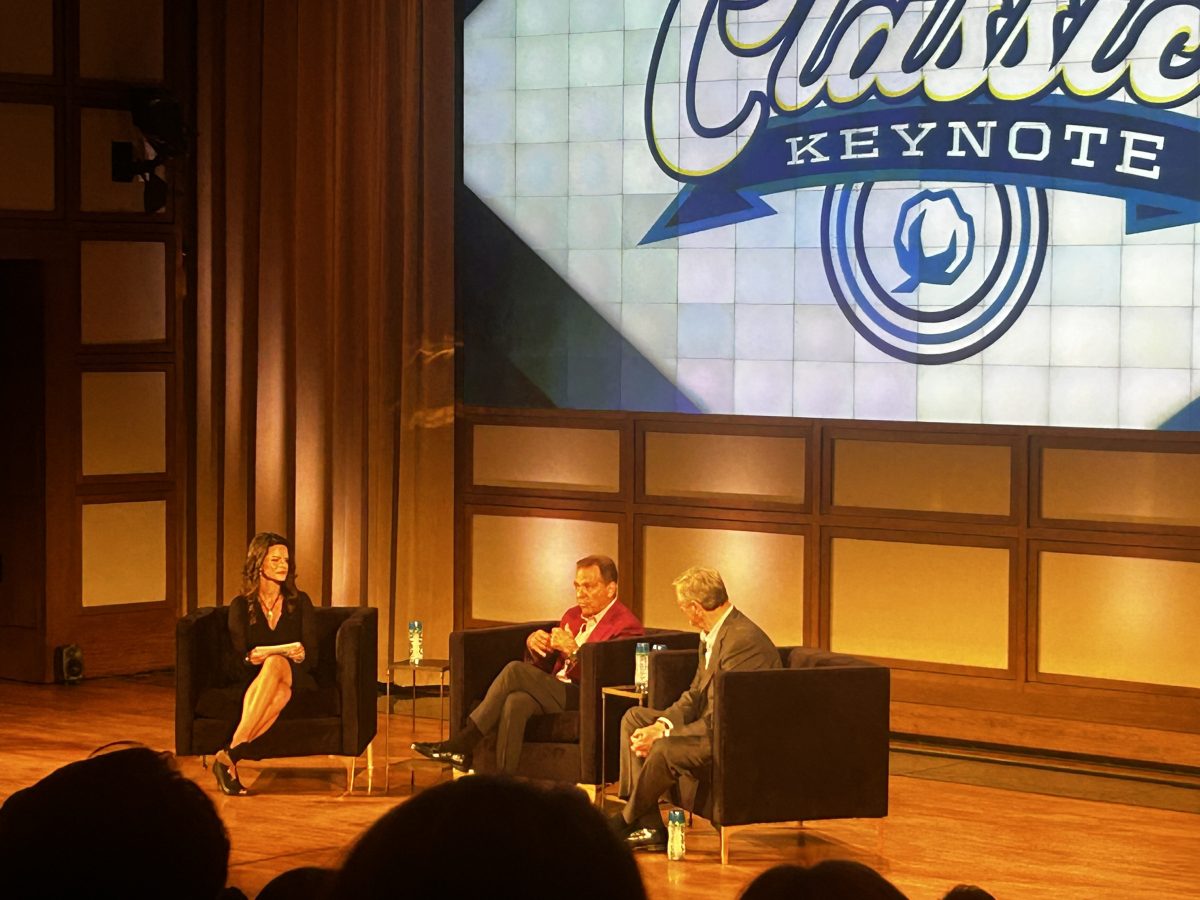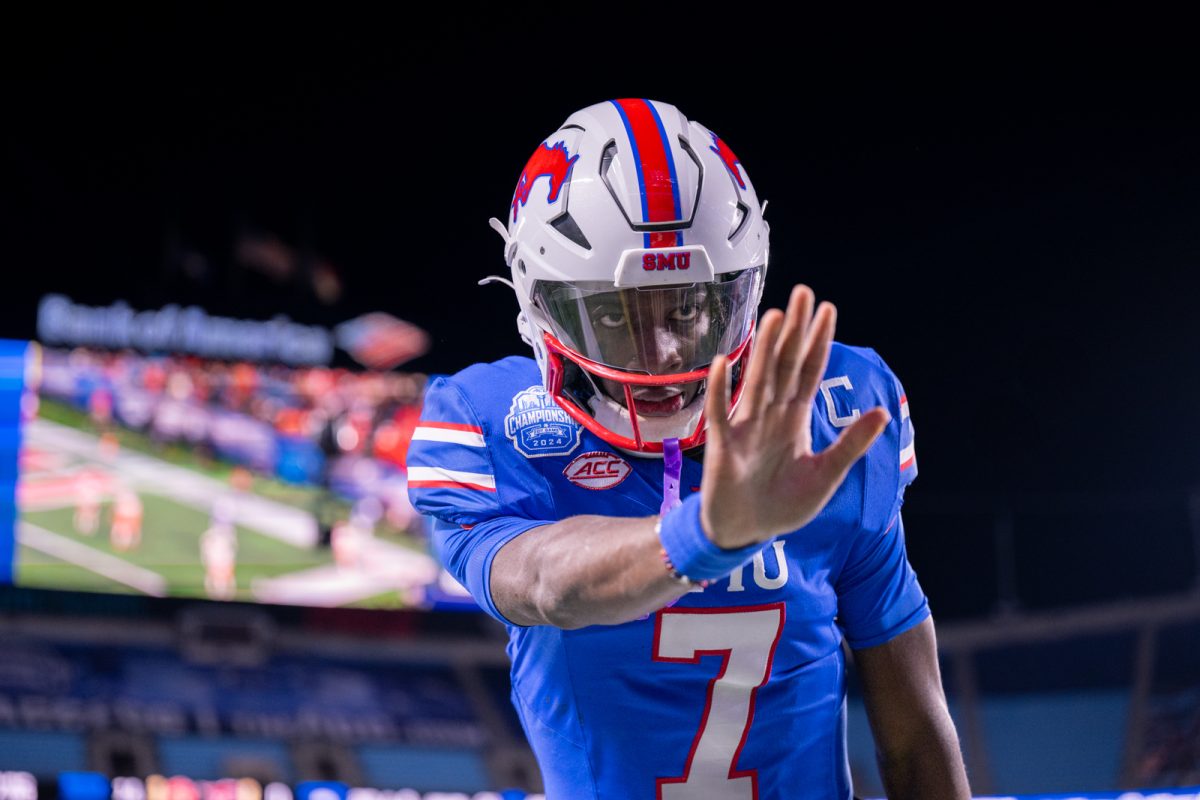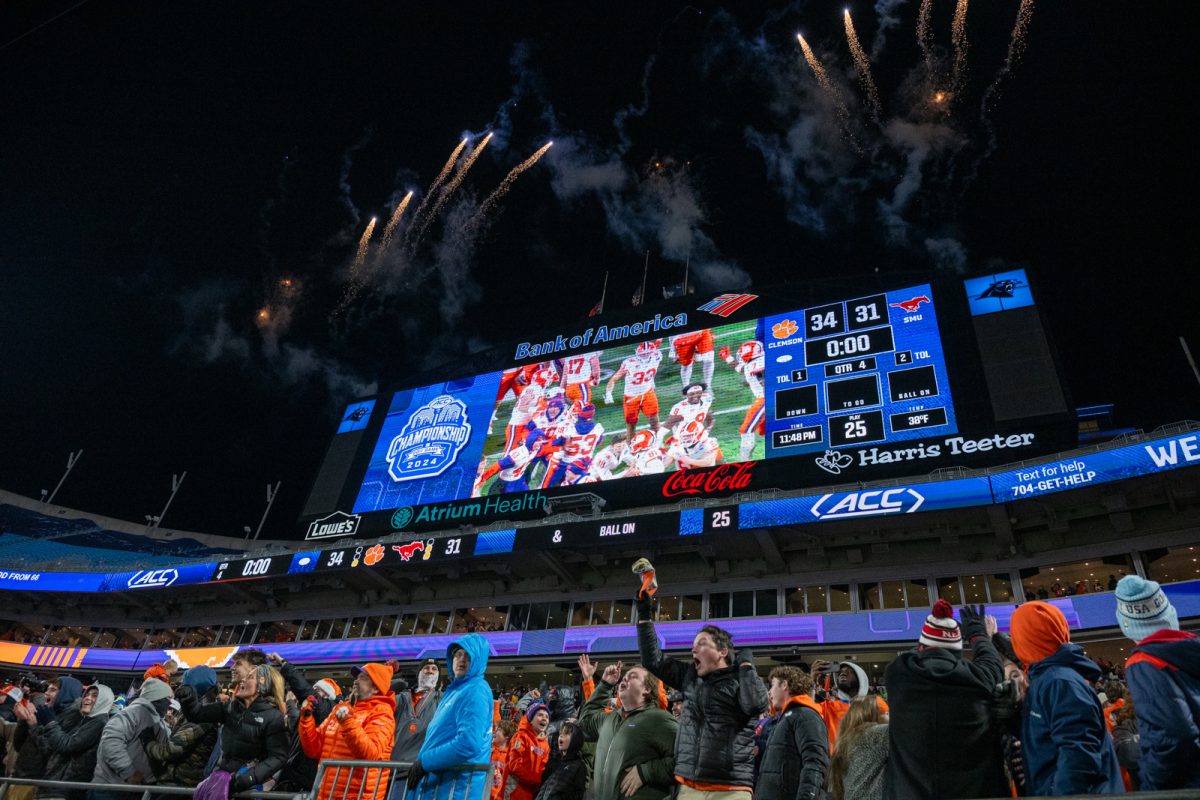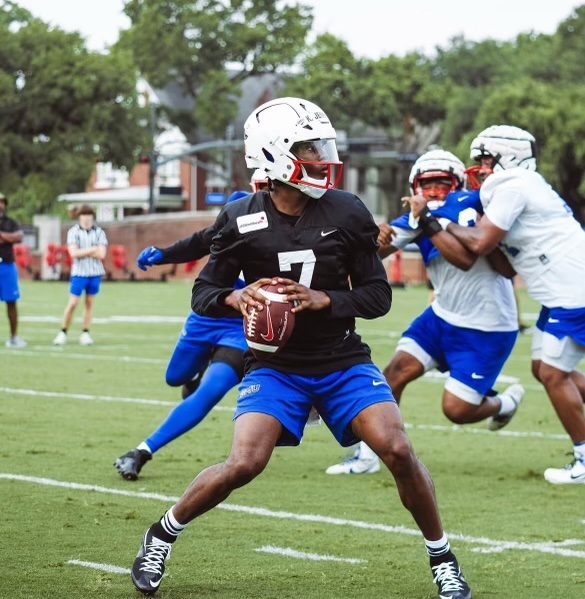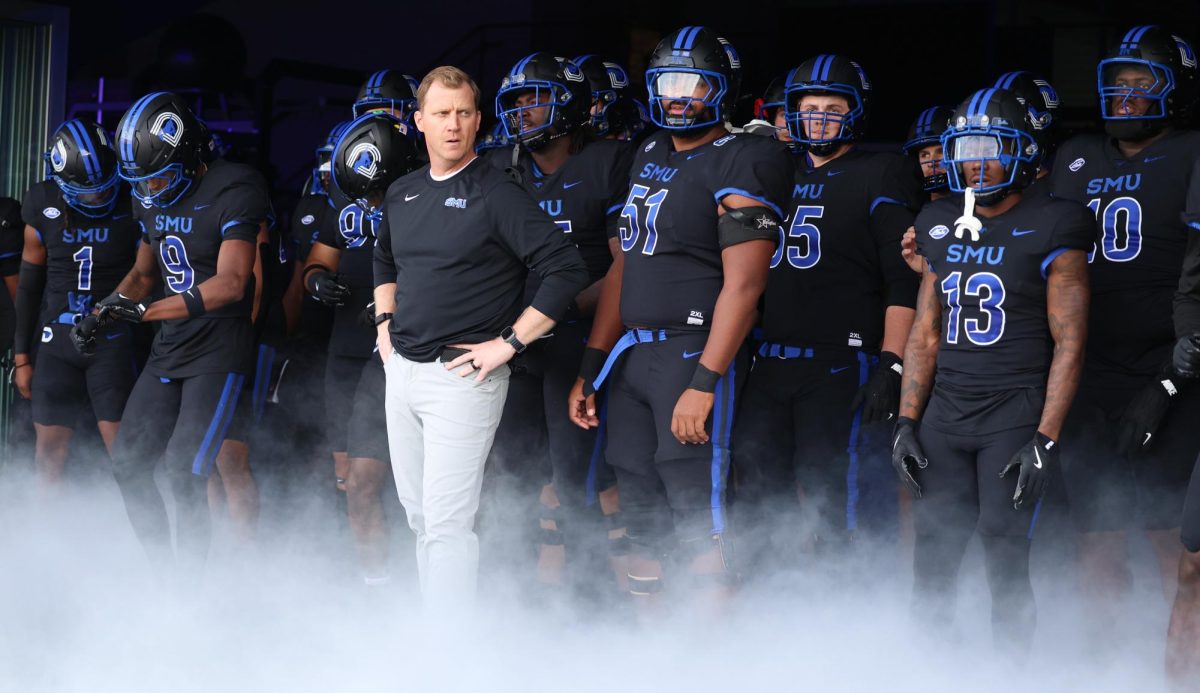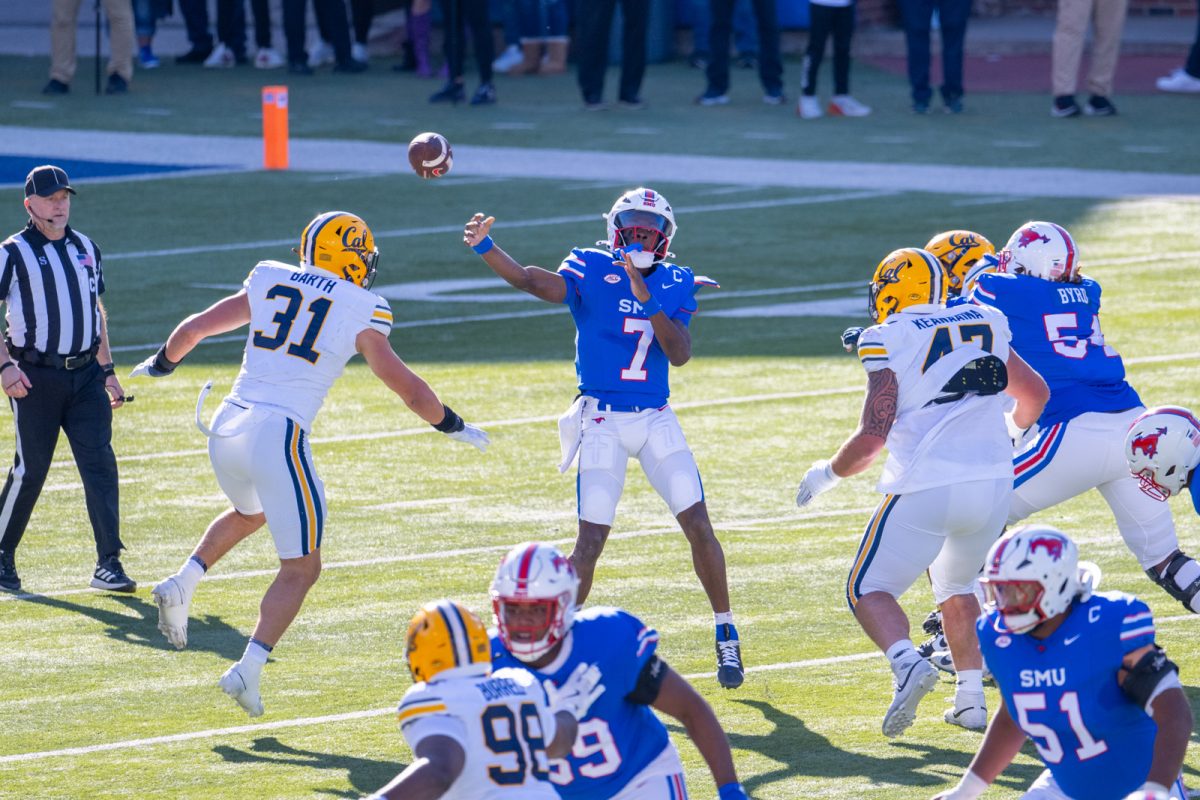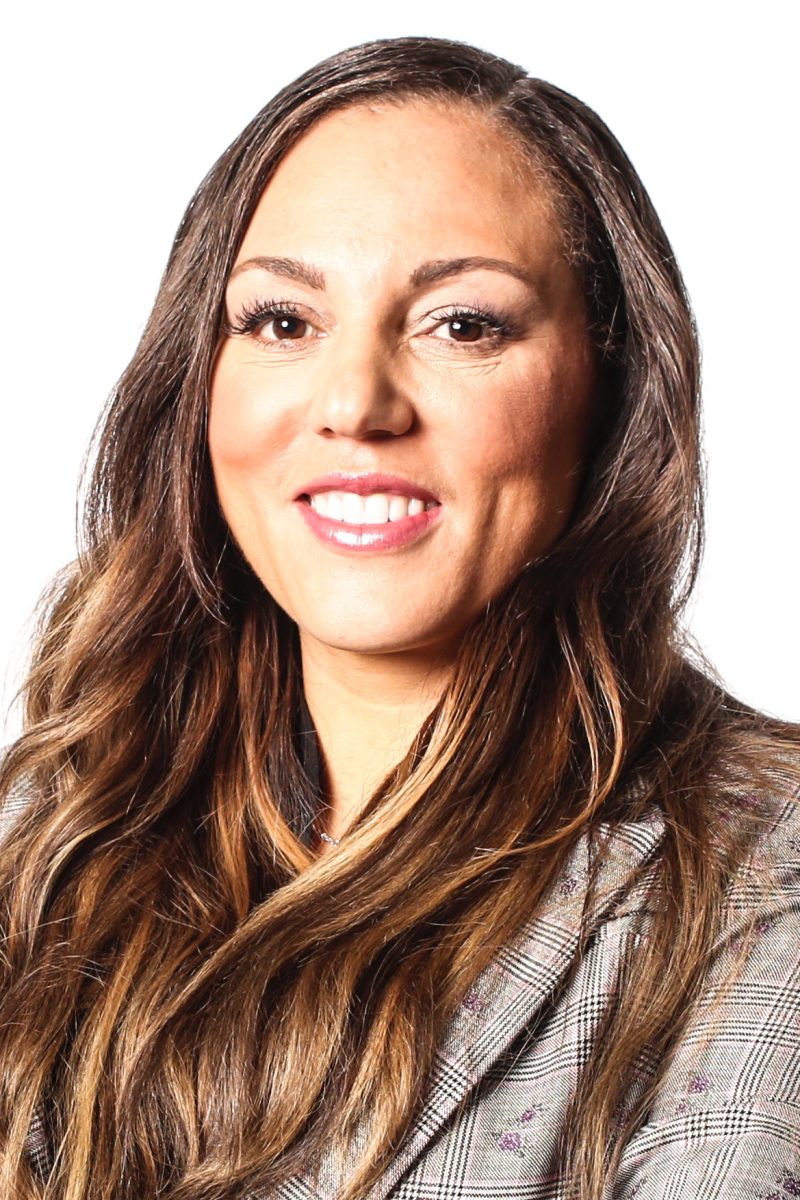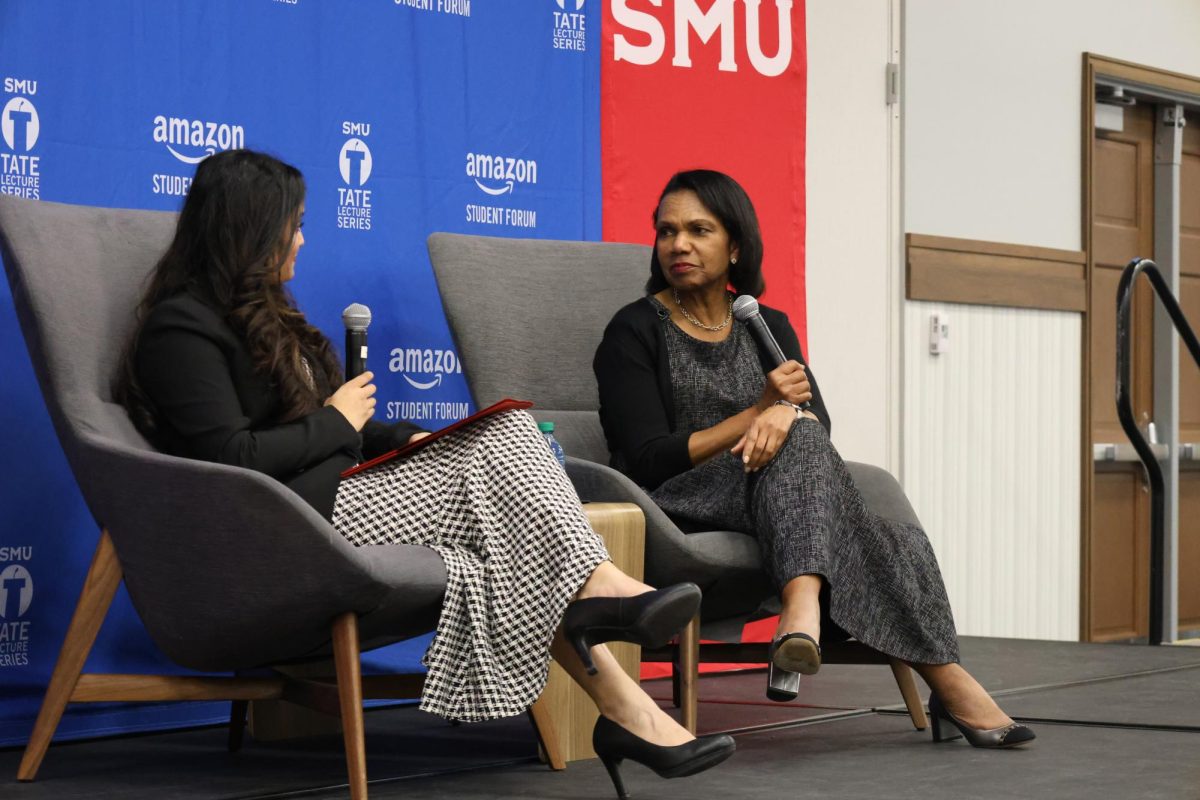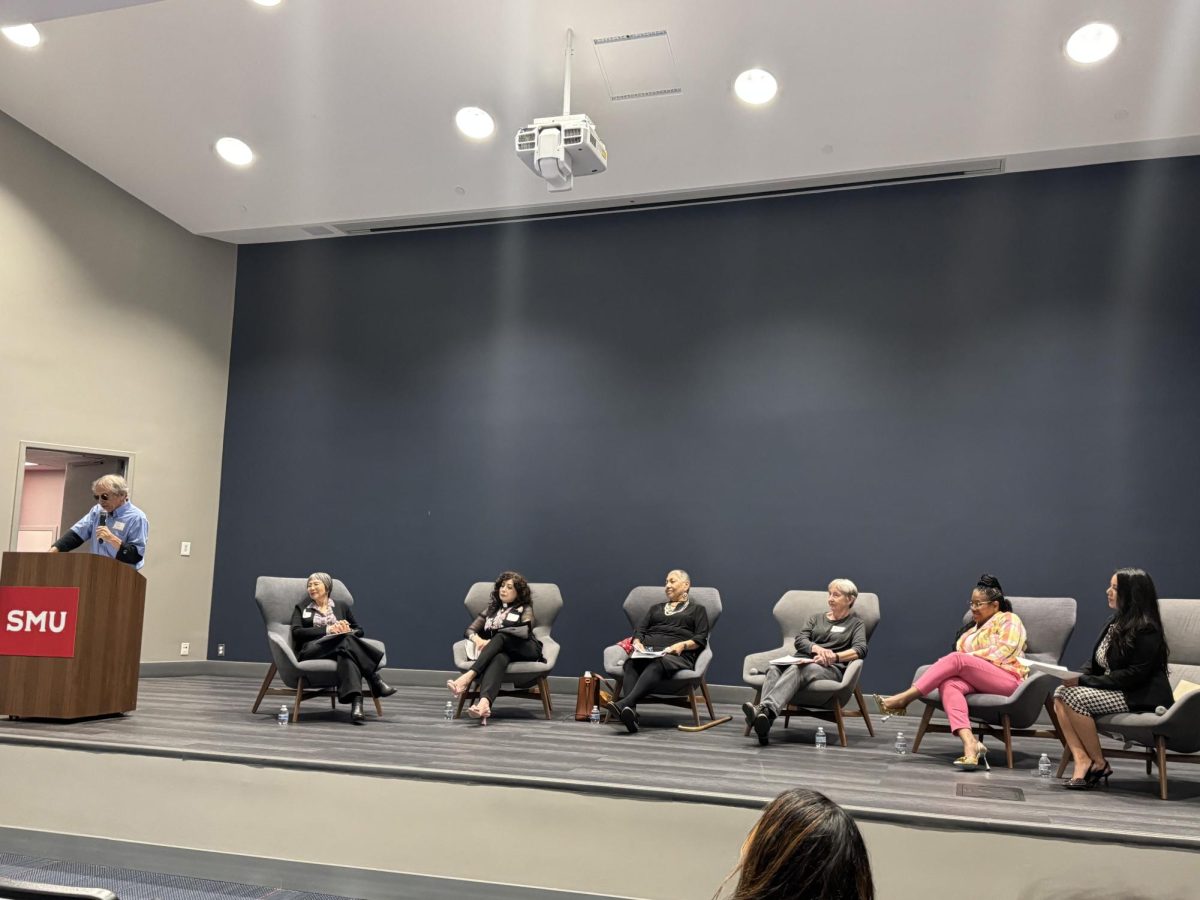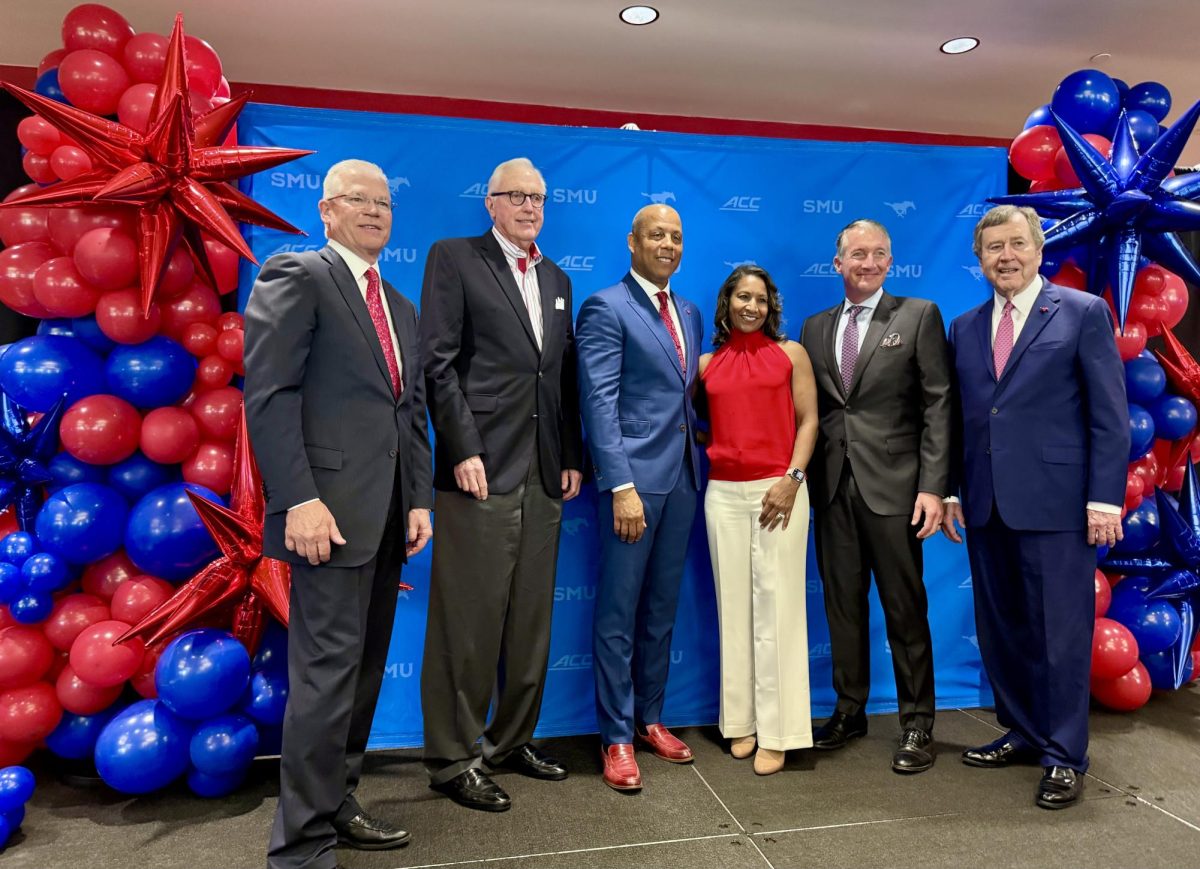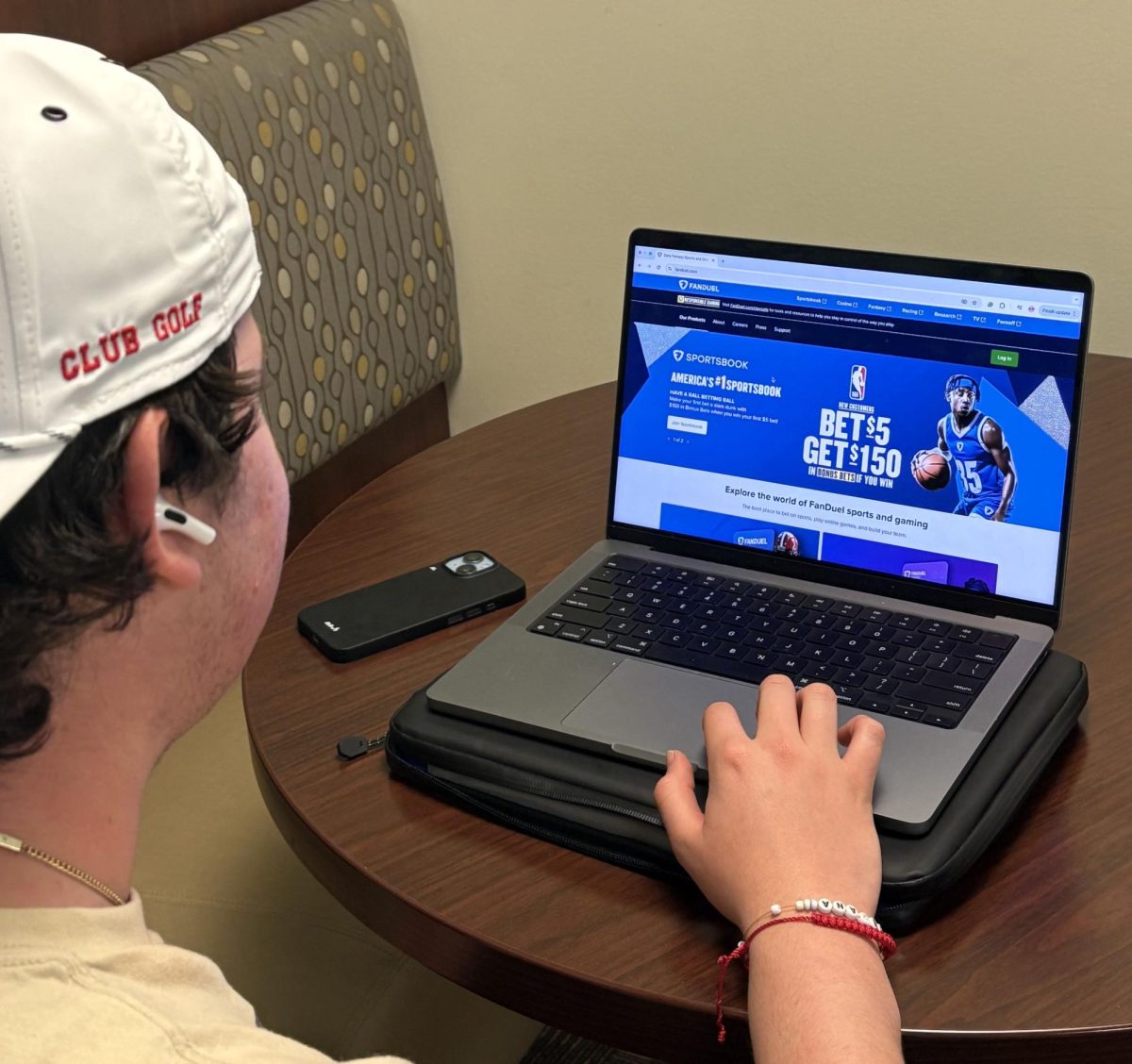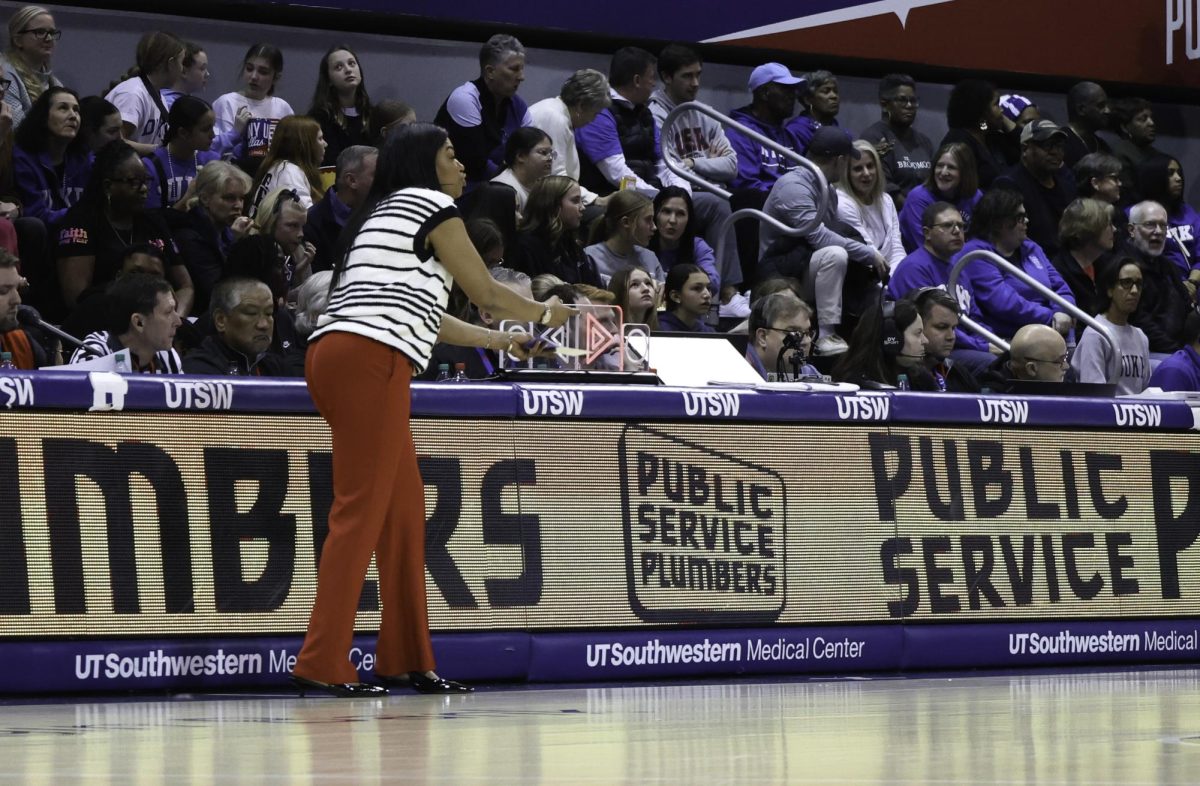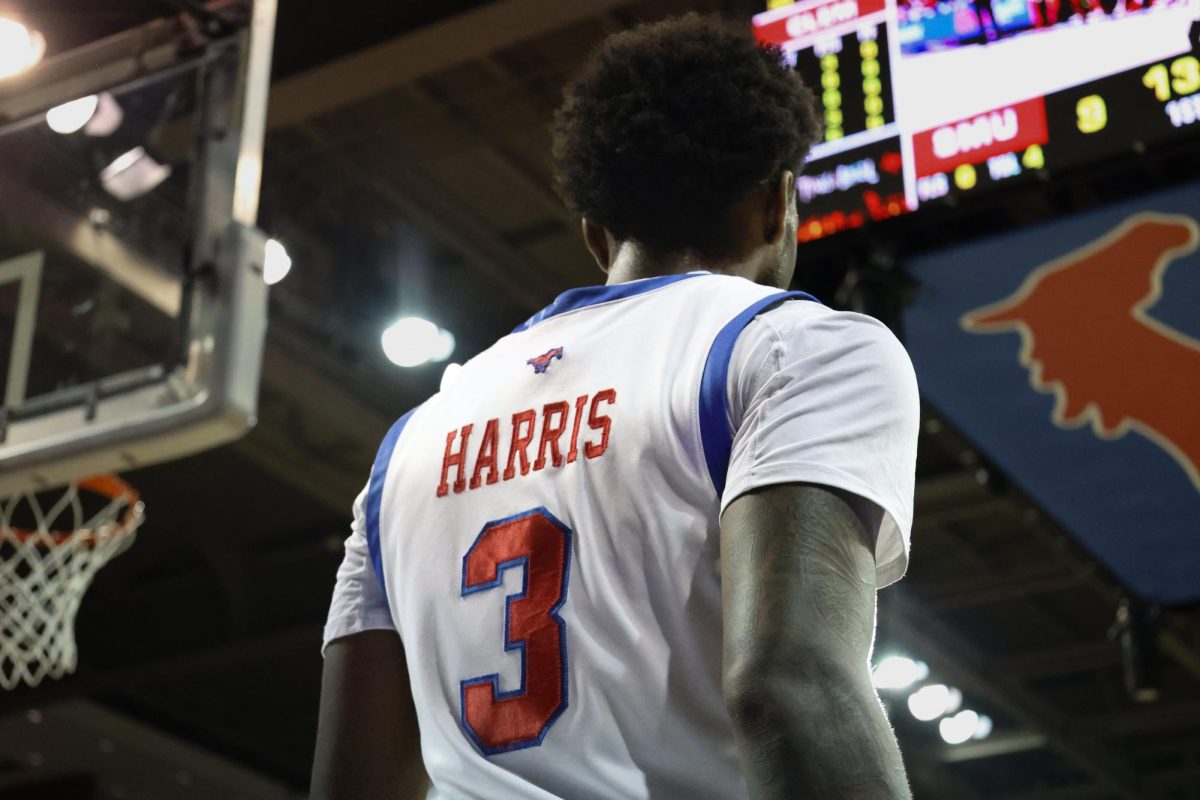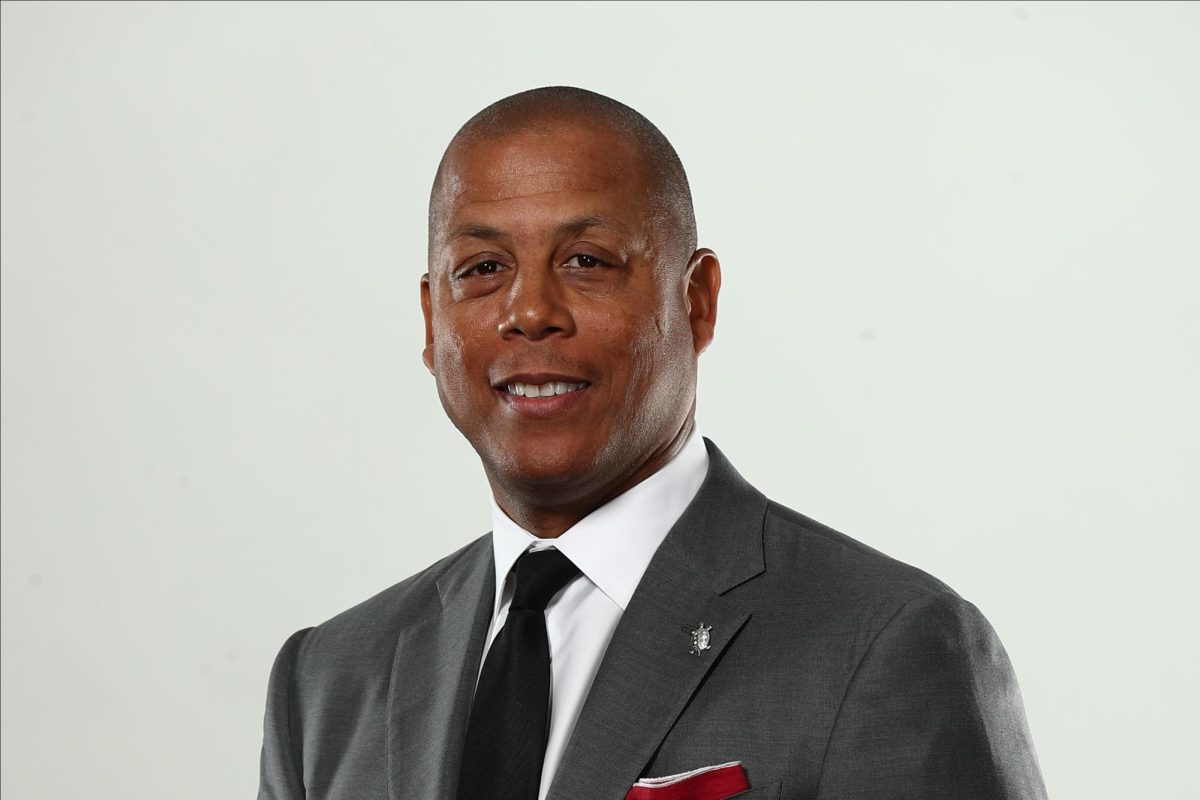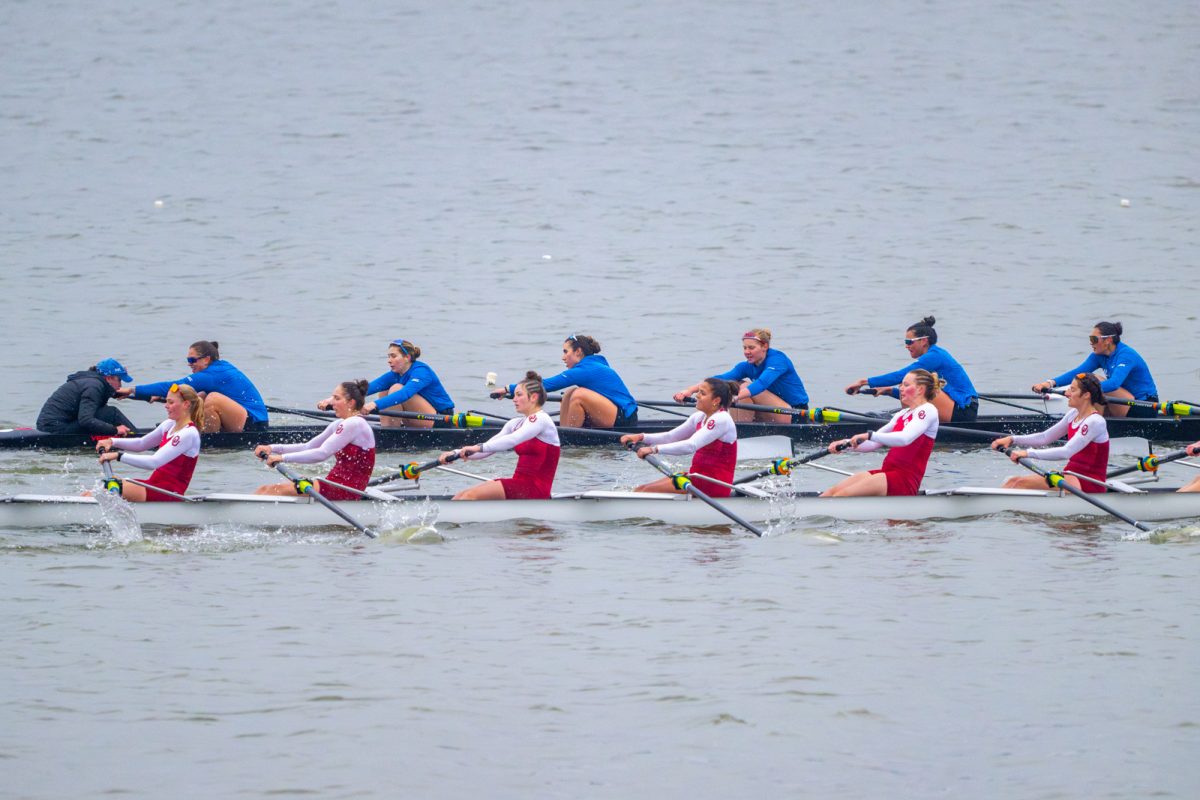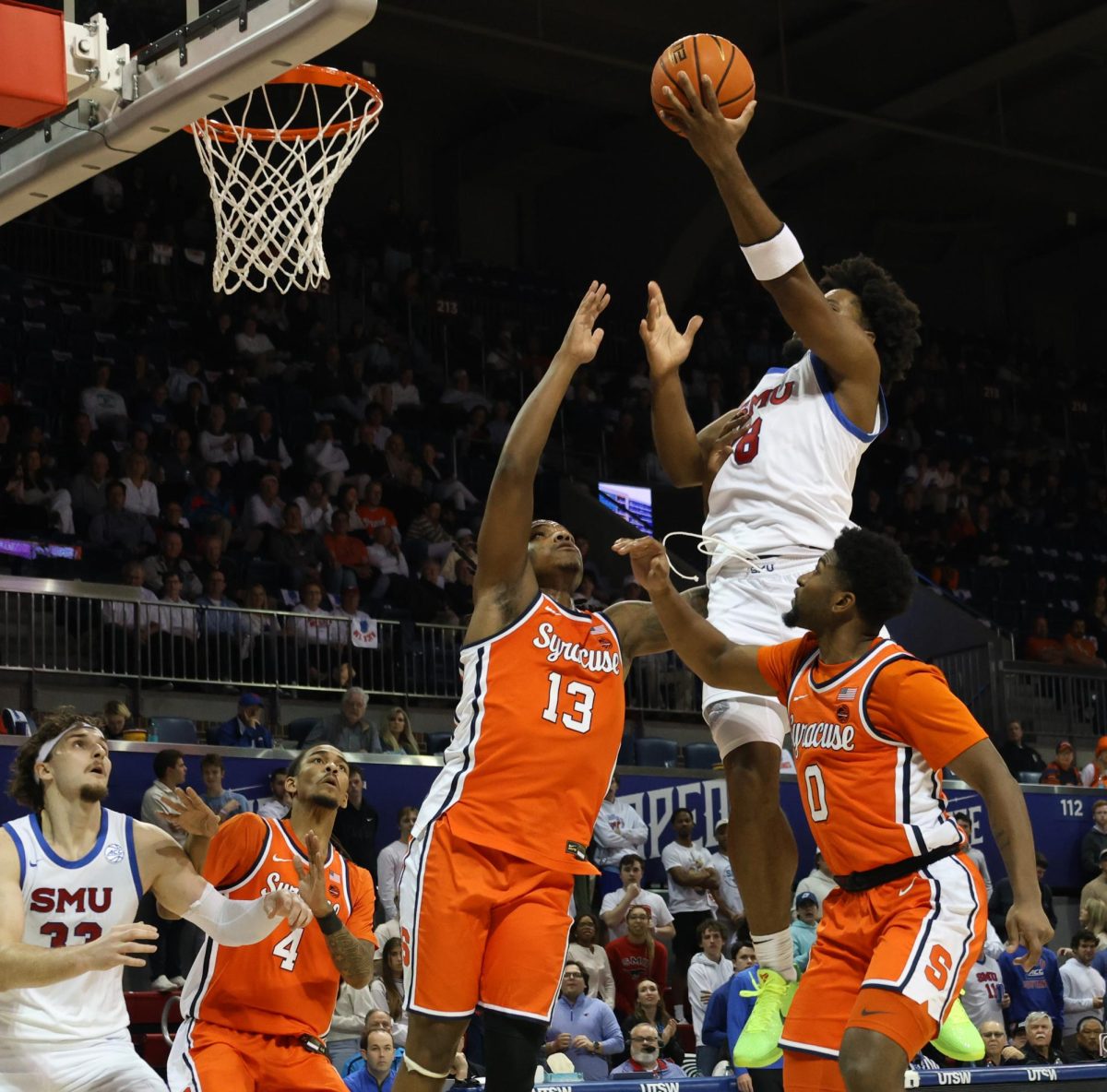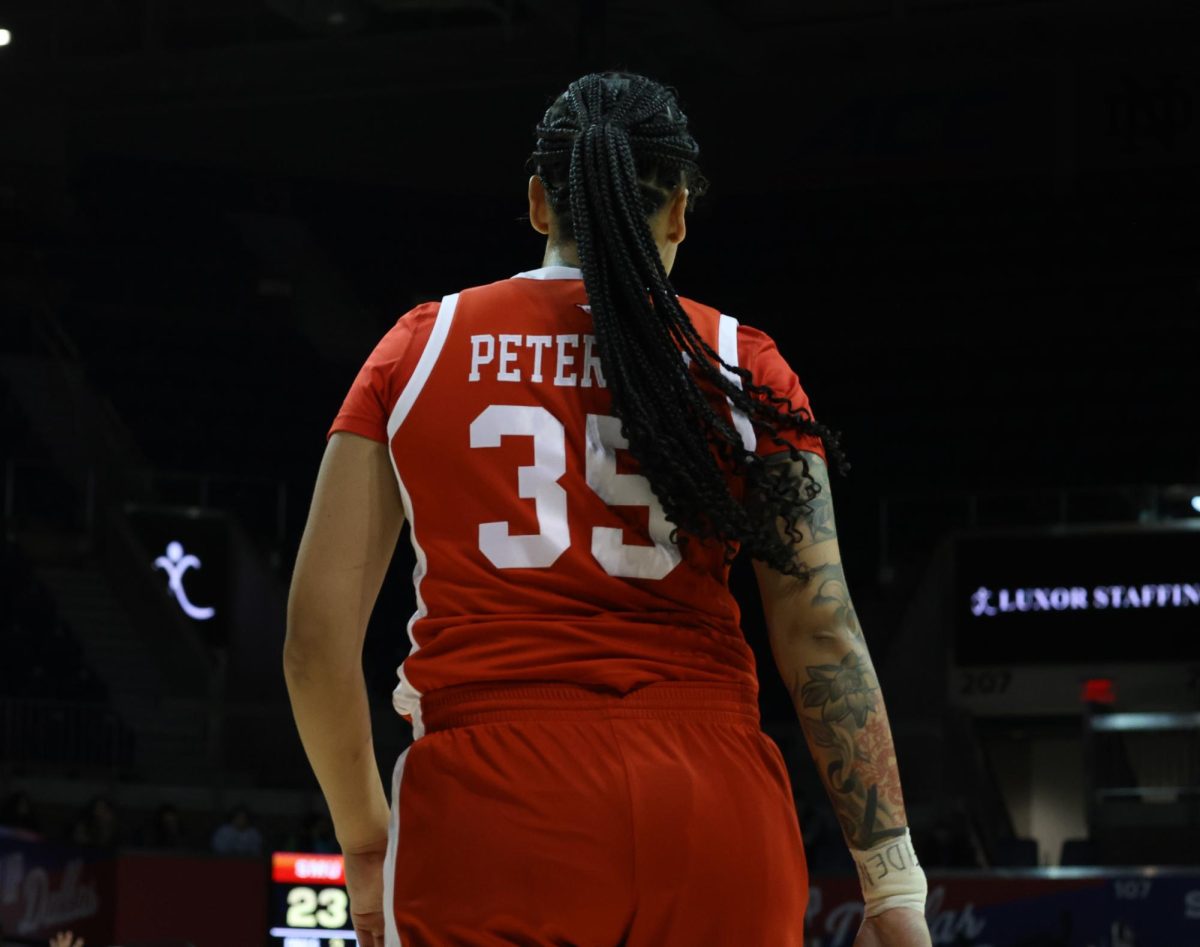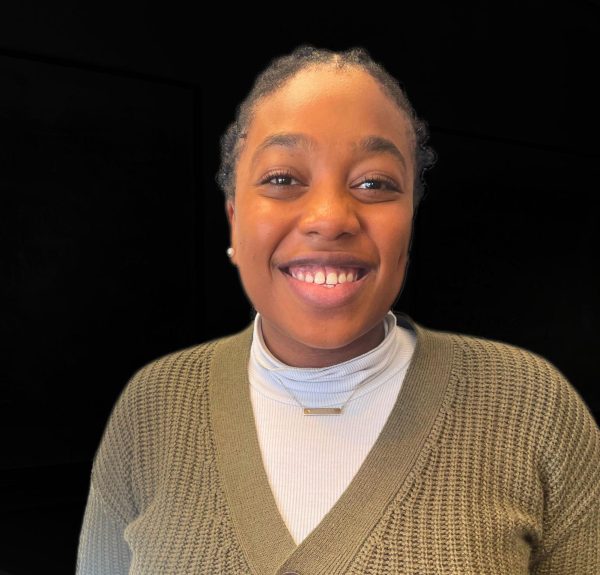Wednesday night, Sept. 18, several North Texas sports celebrities and former professional players gathered at the George W. Bush Presidential Center for the Ewing Automotive Group Classic Keynote hosted by the Goodyear Cotton Bowl Classic.
The venue showcased eight major football awards including the Heisman trophy, the Stallings award, and the Doak Walker award. The 2024 Cotton Bowl Hall of Fame class was also unveiled.
The keynote included a panel of NCAA President Charlie Baker, ESPN analyst and former Alabama coach Nick Saban, and was moderated by ESPN sportswriter Heather Dinich.
The event focused on the future of college football with the institution and implications of NIL, name, image, and likeness, in football and across other NCAA sports.
This issue of money in college sports, funding, and paying players through the NIL, was central to this discussion. At the moment, there is no structure in place on how schools should handle paying players or how the transfer portal can be used. Teams are now dealing with players who have had successful seasons abruptly entering the transfer portal because of promises made by donors and companies looking to create partnerships with players.
Saban, former Alabama head football coach, is no stranger to this new phenomenon and spoke about the difficulty of creating a strong team with players constantly looking for the next deal.
“It’s also more difficult to create team chemistry because you have so much roster turnover on your team and it’s also harder to develop players,” Saban said.
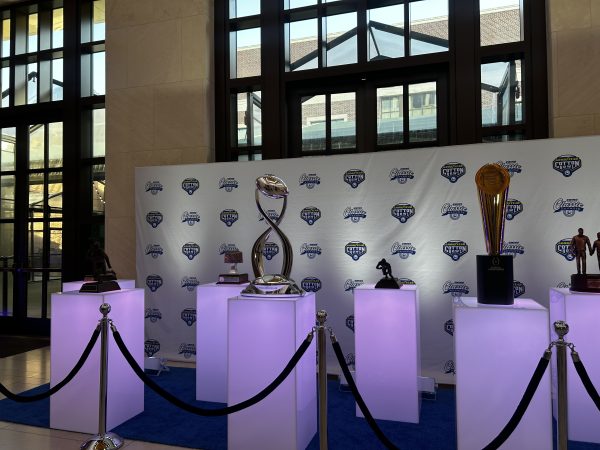
NIL was instituted in June 2021, which allowed NCAA athletes to monetize their personal brand. The laws vary from state to state which provides a challenge to coaches and universities alike.
In order to combat this issue, Saban called for federal regulation on NIL deals and player monetization. This would allow for a streamlined process between universities and players, with the hopes of creating a stronger sense of community within a season by keeping players at schools.
During the panel, both Saban and Baker were asked about how they’ve seen NIL play out on the field and across campuses nationwide and they expressed similar sentiments about what they’ve seen.
“College sports are not a business. It’s revenue producing,” Saban said, “We reinvest it in the players and opportunities for non revenue sports so that they have an opportunity to graduate and compete.”
Saban explained that the NIL ruling in 2021 only allows for men’s basketball and football to make a profit, while other sports continue to lose money due to them not generating the same amount of revenue that basketball and football do.
There are structural and functional issues NIL creates which cause inequalities and potential roadblocks for players and coaches in their sport.
Saban explained that should players be paid more money in the NIL budget, they would be considered employees and have to pay taxes on every dollar they receive—including The Pell Grant and other financial aid from the federal government.
These difficulties are being straightened out, but overall, the NIL has mixed reviews in college sports. Saban being one who seemed to be unimpressed with the current state of NIL in NCAA football.
Baker said the NCAA is working on a plan to give colleges the budget to support their athletic departments as they support their athletes.
“The settlement we’re [the NCAA] currently negotiating with the courts and the plaintiffs has a 22% blended cap of revenue. Ticket revenue, sponsorships and media rights across the power conferences. That’d be the cap for everybody if they want,” Baker said. “I think [this] creates transparency around this stuff. The lack of transparency in this space is part of the reason why kids and families keep getting screwed. This [settlement] would create transparency which I think would make a big difference.”
Russell Maryland, Hall of Famer and father of SMU tight end, RJ Maryland, expressed enthusiasm over the opportunities that can come out of the NIL, especially when players don’t let money disrupt team chemistry.
“The main thing with NIL is that when you get guys that come in from other teams that you don’t get the jealousy, that you don’t get the, oh well he’s making this much, he’s making that much, and guys get put off by it and it disrupts the chemistry and culture and I haven’t seen that yet,” Maryland said.



